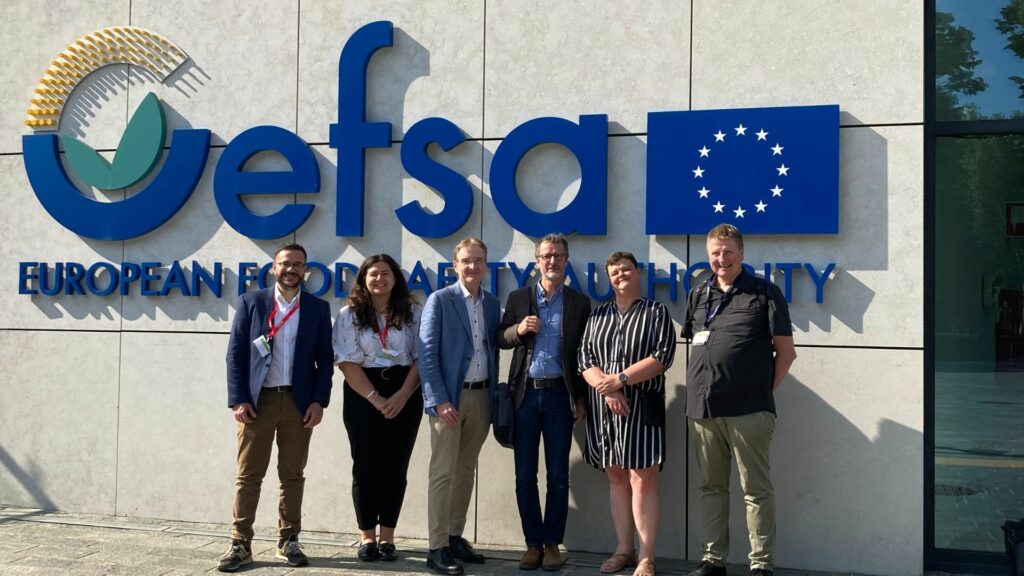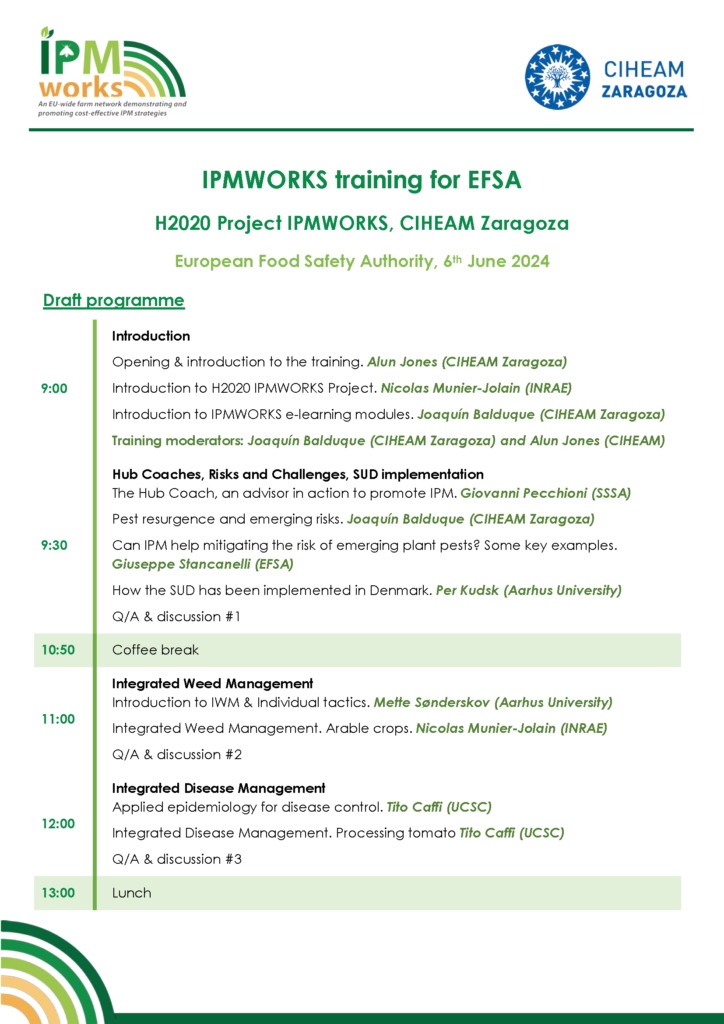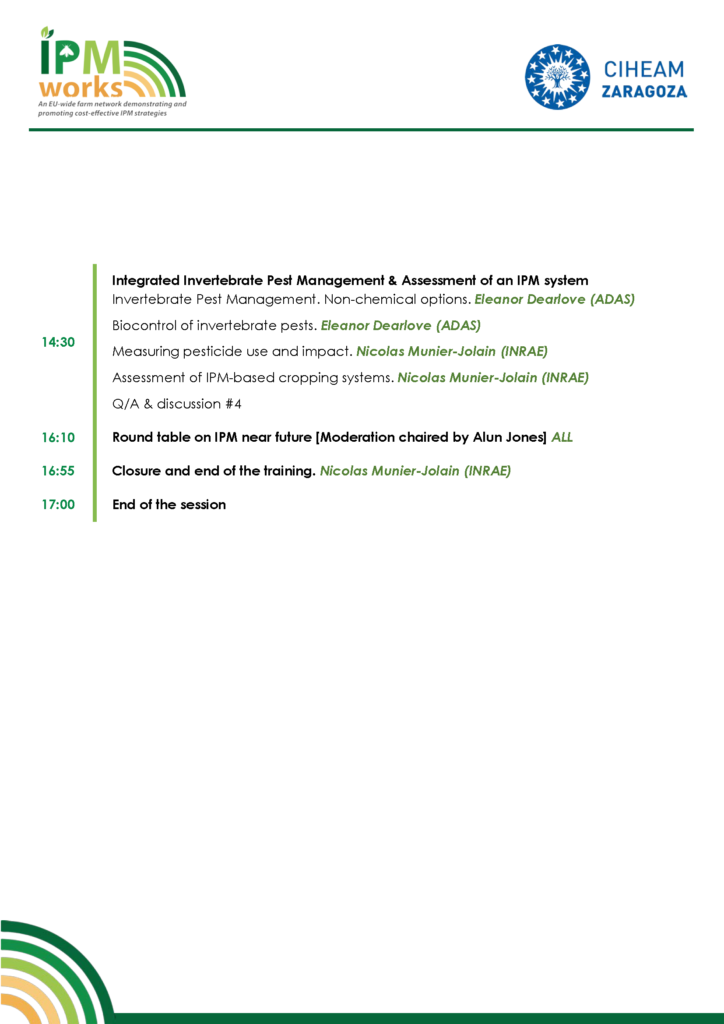Specialised training on IPM delivered to EFSA and EU Commission staff under IPMWORKS
The session had a high level of attendance, with 32 EFSA members present in the room and 8 EC members remotely connected, including DG AGRI, DG SANTE, JRC and the Committee on the Environment, Public Health and Food Safety of the European Parliament.
The training was based on the IPMWORKS e-learning modules. The materials that make up these modules have been prepared based on successful experiences within the project network, including topics such as plant health risk challenges, different case studies, specific IPM tools and techniques as well as methods for coaching farmers towards the adoption of cost-effective IPM strategies.

After the opening and introduction by Alun Jones (CIHEAM Zaragoza), Nicolas Munier-Jolain (INRAE) and Joaquín Balduque (CIHEAM Zaragoza), the training started with first session Hub Coaches, Risks and Challenges, SUD implementation with the presentations “The Hub Coach, an advisor in action to promote IPM” by Giovanni Pecchioni (SSSA), “Pest resurgence and emerging risks” by Joaquín Balduque (CIHEAM Zaragoza), “Can IPM help mitigating the risk of emerging plant pests? Some key examples” by Giuseppe Stancanelli (EFSA) and “How the SUD has been implemented in Denmark” by Per Kudsk (Aarhus University).
The second session was focused on Integrated Weed Management, with Mette Sønderskov (Aarhus University) presenting “Introduction to IWM & Individual tactics” and Nicolas Munier-Jolain (INRAE) sharing the case study “Integrated Weed Management. Arable crops”.


On the third part, Tito Caffi (UCSC) presented the materials for Integrated Disease Management with his presentations on “Applied epidemiology for disease control” and “Integrated Disease Management. Processing tomato”.
The last session was dedicated to Integrated Invertebrate Pest Management & Assessment of an IPM system. In this part, Eleanor Dearlove (ADAS) presented “Invertebrate Pest Management. Non-chemical options” and “Biocontrol of invertebrate pests”. On the other hand, Nicolas Munier-Jolain (INRAE) presented “Measuring pesticide use and impact” and “Assessment of IPM-based cropping systems”.
The event was ended with a Round table on IPM near future, chaired by Alun Jones (CIHEAM Zaragoza) and the closure from Nicolas Munier-Jolain (INRAE), IPMWORKS project coordinator.
This event was an extraordinary opportunity to keep spreading the word about IPMWORKS and about how IPM allows a low reliance on pesticides with better pest control, reduced costs and enhanced profitability. All attendees showed undoubted interest and active engagement during the training.